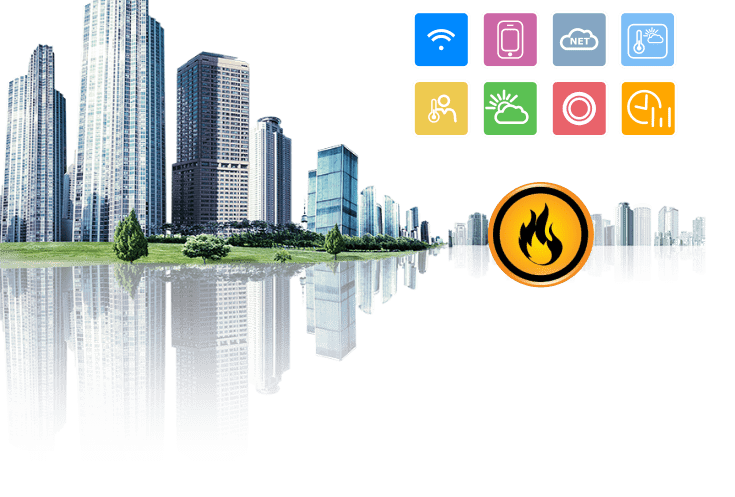What is heating without electricity and OFFGRID?
Many consumers know that it is better to organize heating of small houses using an electric boiler, but they are afraid of the cost of operation and the limitations in kilowatts. For this reason, people wonder what heating can be like without electricity, since gas heating is not possible everywhere, and design work will cost about 100 thousand UAH. (2024).
Let's consider the question in more detail...
Heating without using electricity is possible thanks to various alternative energy sources. Here are some ways:
- Solid fuel boilers (TT boilers). These include stoves burning coal, wood briquettes, pellets and other solid fuels. They are efficient and can provide heating without electricity.
- Propane or natural gas systems can also provide heating without electricity. They operate on gas cylinders and are connected to a gas pipeline or from an LNG storage facility. Heating from gas cylinders is expensive.
- Solar collectors can be used to collect solar energy and convert it into heat. This is an environmentally friendly heating method that does not require electricity. Solar systems are very effective in heating underfloor heating in spring and autumn.
- Geothermal heating systems use heat stored in the ground to heat buildings. They can also do without electricity, but the heat pump will require electricity to operate, at least 1 kW.
- Pellet heating also refers to alternative energy sources, but formally they are TT boilers. This is an inexpensive, convenient and comfortable type of heating with installation that will be comparable in cost to a gas project.
- Diesel generators are another option for heating without electricity. They use diesel to heat the coolant and can be effective in some cases.
Each of these methods has its own advantages and disadvantages, and the choice depends on specific conditions, preferences and resource availability. Based on our experience, we recommend solar collectors for underfloor heating, as well as a fully autonomous pellet boiler, which will provide comfortable and inexpensive heating without gas, but with an appropriate level of comfort. In other words, the question “what kind of heating is there” still comes down to a classification of types, depending on the purpose of the type of heating.
The advantage of pellet technology: what types of pellet heating are there?
Pellet heating is an efficient and environmentally friendly heating method that has several advantages:
- Ecological cleanliness. Pellets are made from biomass such as sawdust, shavings, straw and other organic materials. They are considered an environmentally friendly fuel because they release much less carbon dioxide when burned than traditional fossil fuels such as coal or oil.
- Efficiency. Pellet heating systems are highly efficient. Fuel is supplied automatically from the bunker to the combustion chamber, which allows you to maintain a stable temperature in the room. When set up correctly, a pellet system can be very efficient and economical.
- Ease of use. Pellet systems are usually automated and easy to operate. The pellet storage bin can be filled for an extended period of time, providing convenience and minimizing the need for frequent refills.
- Low operating costs. In some regions, the cost of pellets may be lower than traditional fuels such as heating oil or natural gas. This can lead to lower overall heating costs throughout the season.
- Compactness. Pellets have a high density and are stored in compact bins, which makes them convenient for storage and transportation.
- Less dependence on electricity. Although some pellet systems require power to operate fans and automatic pellet feeds, they are generally less dependent on electricity than some other heating systems, such as electric boilers or heat pumps.
Overall, pellet heating is an attractive alternative to traditional heating methods, especially for those who value environmental friendliness, efficiency and ease of use. The presence of a pneumatic drive and an ash filter allows the boiler to be operated continuously and without labor-intensive cleaning. This allows the deployment of unattended, high-capacity boiler houses. With this technology, suitable for OFFGRID, you will forget for a long time about the question of what kind of heating there is.





